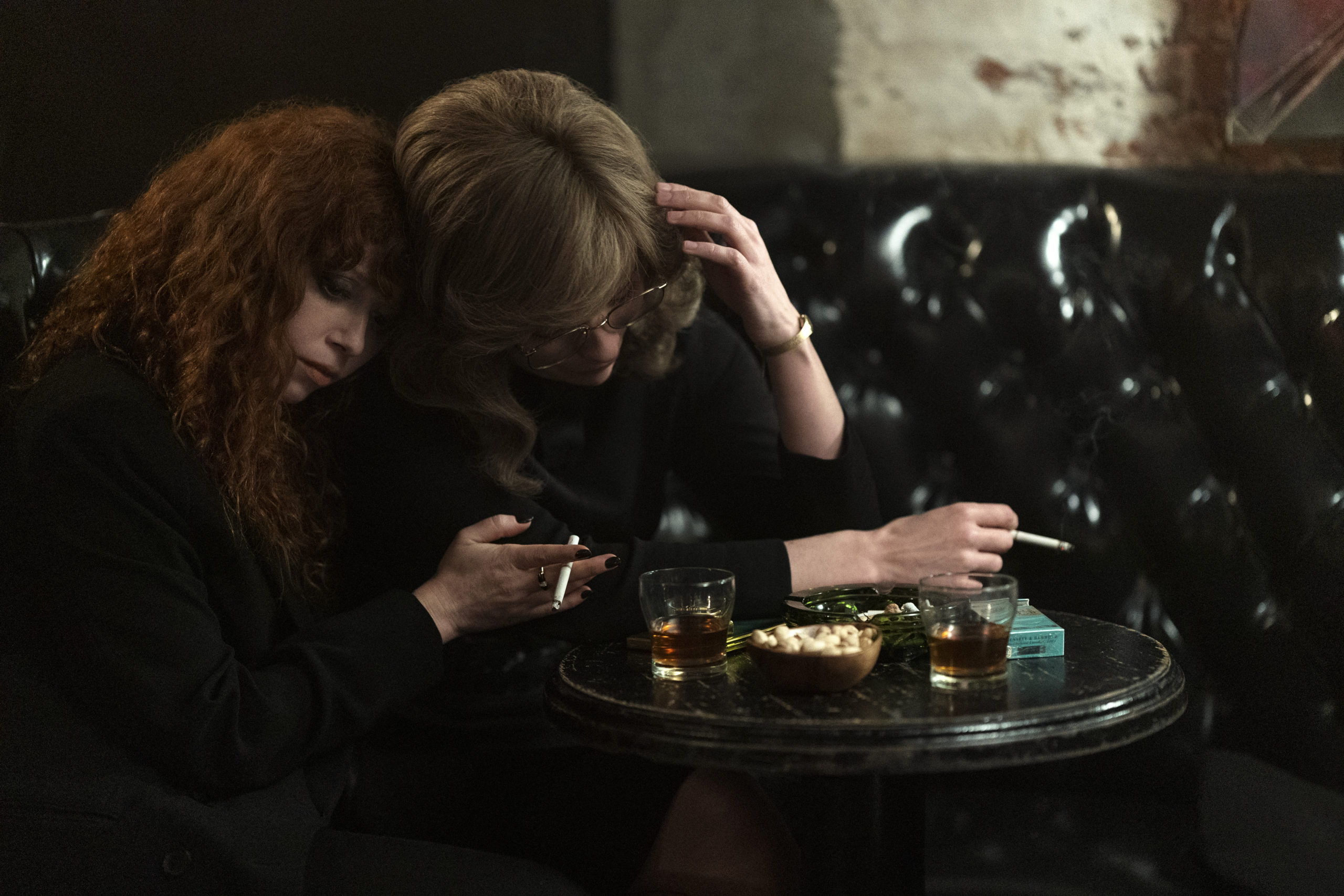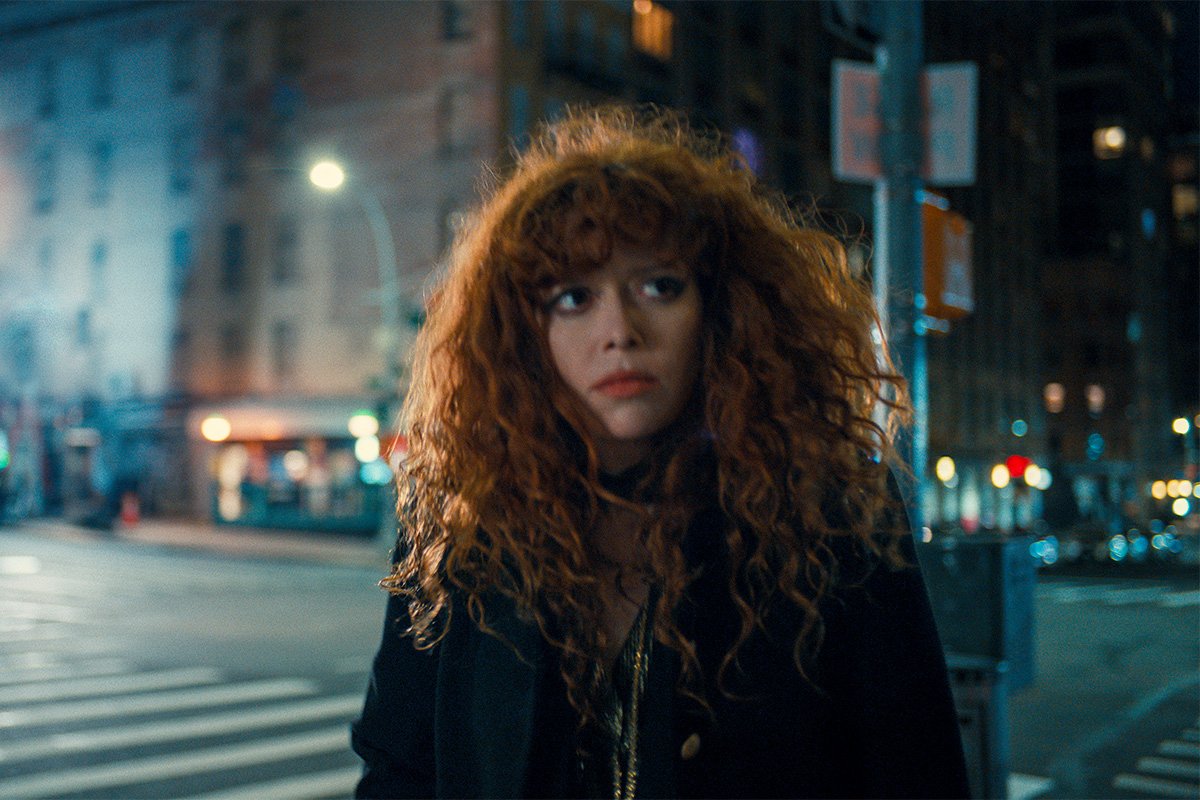Some spoilers ahead for season two of “Russian Doll.”
“Generational trauma” (clears throat) has become such an oft-used phrase in the last few years that it sort of feels like we’ve lost the plot on what it really means (see also: neoliberal). I’m half-expecting that by next week, someone will earnestly call a strawberry allergy they inherited from their father “generational trauma.”
To that end, generational trauma has also become one of the most popular themes of today’s television shows and movies. It’s nearly impossible to read a review without the critic invoking the lofty term.
So, when “Russian Doll” recently made its second season debut, touting a storyline about (you guessed it) generational trauma, it might have felt easy to shrug it off and say, well, it’s 2022, what isn’t about that?
(To the show’s credit, season one, which premiered all the way back in February 2019, also explored themes of generational trauma.)
But I have to hand it to Natasha Lyonne and the rest of the “Russian Doll” creative team. While I know they were not making a show for me personally, watching the second season certainly felt that way – and I have to guess I’m not alone in that.
At the center of “Russian Doll” is Nadia Vulvokov, the wise-cracking, raspy-throated Lyonne doing some of her best work since her star-making turns in “Slums of Beverly Hills” and “But I’m A Cheerleader.” And that’s no coincidence – the show was created by Amy Poehler and Leslye Headland in partnership with Lyonne, to give the “oldest girl in the world” a vehicle in which to star.
With Headland departing as showrunner for the second season, Lyonne stepped in to fill her shoes; in doing so, the Jewish actress brought even more of her own personal history to the forefront, giving viewers no shortage of Jewish history to explore (Lyonne is, herself, a descendant of Holocaust survivors). Nadia finds herself first in downtown Manhattan in 1982, in her pregnant mother’s body, then in her grandmother’s body in Budapest 1944, trying to secure the return of her family’s possessions after they’re stolen by the Nazis – and in doing so, she hopes to change everything. More so than wealth, Nadia wants to prevent the irreparable rift between her grandmother and mother caused when her mother steals her grandmother’s Kruggerands, the gold coins that represent the last of the family’s riches from Europe. The consequences of her mother’s infraction would reverberate in their family for years to come (there’s that generational trauma for you). “Russian Doll” focusing specifically on the loss of mothers makes sense, too, given the importance of motherhood and matrilineal ties in Judaism.

While Nadia’s story doesn’t echo mine exactly – for starters, I have never been stuck in a “Groundhog’s Day”-esque situation wherein I experience a different death every day, nor have I ever been transported into my mother or grandmother’s body – I do relate. My family fled Eastern Europe in the late 1800s to escape the pogroms, and settled in Brooklyn and the tenements of the Lower East Side. Since then, my family has remained stalwart New Yorkers.
But what’s more is that I relate deeply to the intense, life-altering grief that Nadia feels. On the last day of 2018, my mom lost a years-long battle to an aggressive melanoma. She was 66 years old —older than Nadia’s mother had been when she died, but it tore me up all the same. A little less than three years later, my grandmother passed away at the age of 96. While I’m grateful that my grandmother enjoyed such a long life, it remains hard to accept that within a few short years, so much of my collective family history was taken by time, or stolen from my family by disease.
Grief is like an invisible exoskeleton that rearranges your insides and through which everything is filtered. What looked one way before, even the seemingly innocuous, is now slightly skewed. Nadia, who is quick with a retort but clearly sensitive, wears this exoskeleton. Her clothes suggest this, too — huge overcoats with silk blouses underneath.
But the thing that I think people don’t often understand about deep, intense grief is that it makes you a little crazy. Am I sad that my mom died? Of course. But sadness doesn’t really feel like a strong enough word to describe it. Would I do anything, anything I could to try to change the outcomes of our lives? Mostly, yes. This includes but is not limited to taking a 6 train to the past. But I would, I think, (spoiler) draw the line at giving birth to myself on a subway platform.
The point being, I understand and relate to the seemingly outlandish decisions Nadia makes in season two, if the risk of splitting timelines means she can spare the people she loves a little bit of pain and help ensure a better outcome for all of them. By the end of the the second season, Nadia realizes that she’s avoiding dealing with the pain she’s experiencing in the present by trying to change the past. It’s deeply tempting to try to fix your past instead of focusing on the here and now, knowing that even after experiencing terrible loss, it is still possible to experience more. And yet, despite Nadia’s transgressions, her friends still show up for her, as mine have for me.
Not to belabor the whole “native New Yorker” of it all, but there’s an added pain that’s inherent in building your life in the very same city where your forebears did, too. My great-grandmother spent her childhood in an apartment in South Williamsburg down the street from where I once lived; my mom lived on the Upper East Side in her early 20s. Sometimes when I walk these streets, it feels like if I slipped into a different timeline, I’d bump into them on the street. I’m making my history in the very same place where generations of my family have once before, and there’s something simultaneously beautiful and painful about that (another deeply Jewish concept).
Ironically enough, my mom referred to her illness as like “being in an alternate universe.” I think if she were alive, she’d appreciate “Russian Doll” as well – but would, too, draw the line at the part where (again, spoiler) Nadia delivers herself as a baby.



